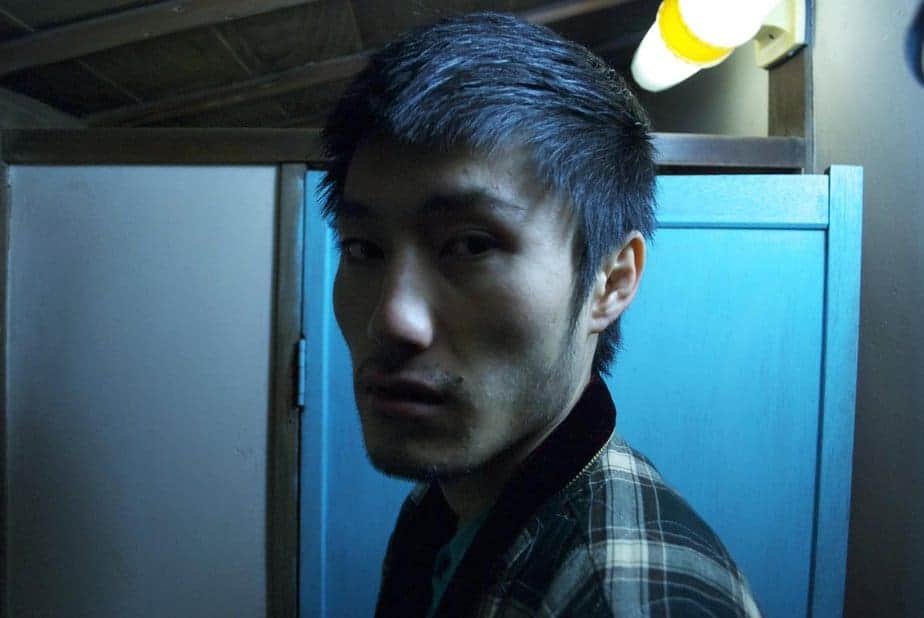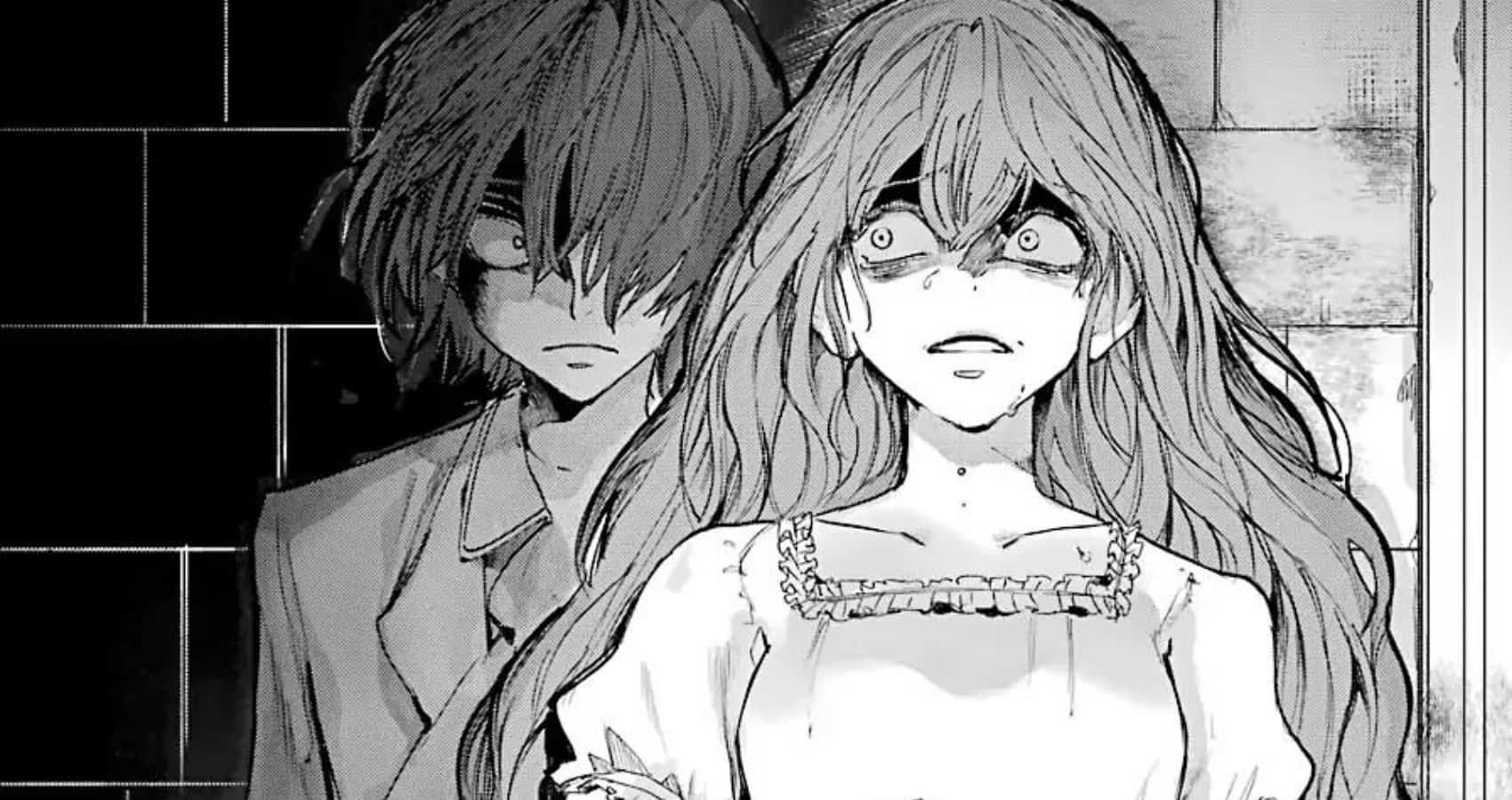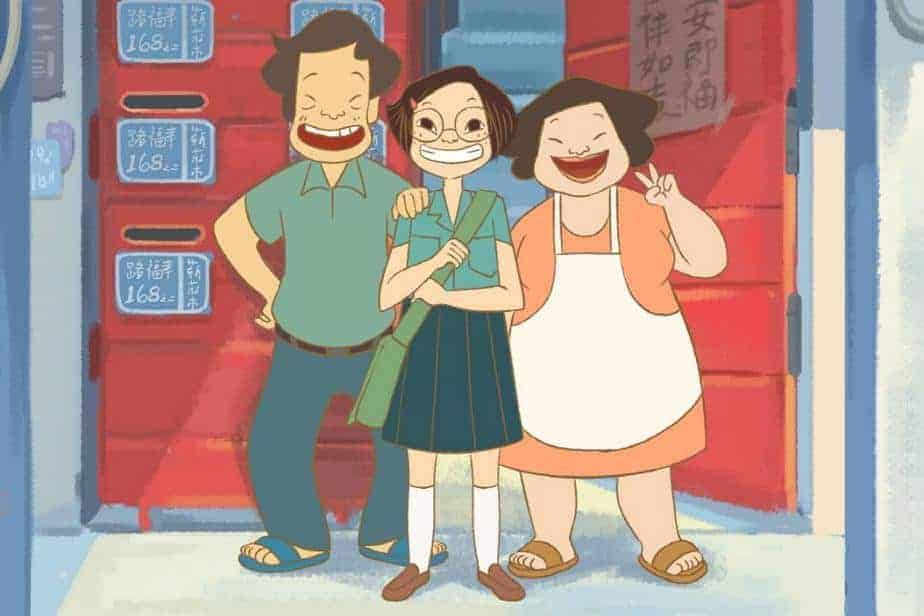A film that fuses surrealism, mystery and drama to create a film that is compelling, humorous and disturbing in equal measure. “Ow” is a peculiar film that defies categorisation and leaves the viewer with many unanswered questions.
Tetsuo Suzuki is a young man who seems to be trapped in a prison of his own making. Living at home with his parents, he lacks the drive to go out and find a job, and would rather just stay in bed. Early in the film, we see him involved in a bizarre monologue concerning noodles and grains that seems to go nowhere, much like his life itself. He appears to be stuck on these rambles while simultaneously being unable to focus on anything that might be of use to those around him. When his girlfriend arrives at the house, the two witness a floating orb in his room that causes them to become physically paralysed at the sight of it. Later, when Tetsuo's father arrives home early and goes to tell his son that he lost his job some time ago and has been going to the job centre while pretending to work, he too becomes transfixed by the orb. The police are called and begin to be transfixed. Detectives and an investigative journalist are soon on the case and attempting to unravel the mystery of what happened to these people.

Directed by Yohei Suzuki from a screenplay by Suzuki and Yukiko Koyama, the film is a great study of a family in crisis. The floating orb is the only surreal element in a film that is largely straightforward. It is the impetus for the plot and is a perfect example of how just a tiny twist can have a huge impact on a story. The orb is never fully explained and it is possible for the audience to attribute whatever ideas they wish to it. It seems that Tetsuo is trapped in his own mind, unable to connect with the world apart from his girlfriend. He lacks drive and his monologues show he is caught in a repetitive loop of thoughts and behaviours, without the will or ability to break out. He is clearly the focus of the film and the paralysis he undergoes is a physical manifestation of his pre-existing psychological paralysis. Whether this is depression or something similar, it is clear that it has a huge impact on those around him, his parents, grandmother, girlfriend, and brother. The film also layers on a satire about the Japanese police and society's attempts to explain things away or perhaps even ignore potential problems without understanding or resolving them.
The cinematography by Yohei Kashiwada is very good and brings to life the Suzuki family home in tangible way. The exterior of the house, with piled up garbage and the dirty street scene familiar to city life, also helps to give a sense of place and the conditions of the family in a lower class neighbourhood. The film's score by Samon Imamura is a fantastic accompaniment to the bizarre occurrences. It heightens the sense of mystery while underscoring that what is happening is quite surreal and unusual.

Kaoru Iida gives a great performance as Tetsuo. It is hard to say he is a likeable character, but Iida's commitment to the role ensures he is a believable one. Much of the film is inexplicable, and Tetsuo is also left as something of a mystery. It is clear early on, that he is suffering some sort of illness or condition, as his conversation is rambling and he anthropomorphises inanimate objects. Of course Iida's performance is emphasised by the great performances of those around him, such as Sari Kaneko as his cheery girlfriend and Masatoshi Kihara as an exasperated detective on the case.
I would definitely recommend this film as the premise is highly peculiar. The performances of the cast make it an interesting drama and the surreal inclusion of the floating orb that causes paralysis is a novel way of exploring interpersonal relationships. The magical realism could have easily been replaced with a more realistic explanation for the families state of shock and trauma, but that would have taken away from the film's underlying sense of mystery and the inexplicable nature of what has happened. “Ow” is powerful, precisely because it doesn't give the audience any clear answers. It hints at certain problems but allows you to make up your own mind on the potential solutions.















